#China
Buick Poised to Become GM's Greenest Brand - If the Public Wants It
The General Motors division, known for past land yachts like the Electra 225, Roadmaster, and Riviera, will become the automaker’s cleanest in the years to come. Whether that holds true in the United States market depends on a lot of things, including whether lobby groups succeed in saving the marked-for-extinction EV tax credit.
Duncan Aldred, vice-president of sales and marketing for GM’s Buick and GMC divisions, claims the near-luxury Buick badge will appear on the company’s future electric vehicles. However, given the shaky state of the EV market in America, new Buicks will head to greener pastures first.
Hope for Hyundai? China Agrees to Ignore South Korea's Missiles
When it comes to the positively frosty relationship between China and South Korea, this is the part of the movie where the two countries bump into each other at the bookstore and realize they should work out their troubles instead of giving each other the silent treatment. You know, for the kids.
For South Korea, China’s decision to warm up the relationship — which soured after the jittery country placed U.S.-supplied defensive missiles on its soil — is the best news its auto manufacturing sector has heard in ages. Perhaps soon it won’t be frowned upon to own a Hyundai or Kia in Beijing.
13 Burning Questions We Have for Volvo's 2020 Polestar 1
By nature, we’re skeptics. It’s in the job description.
Thus, while it’s hard not to fall in love with the idea of Volvo’s new 2020 Polestar 1 offspring — I mean, just look at it — we also know how hard it is to kickstart a new luxury brand, regardless of whether Polestar wants to sit far outside the luxury mainstream or right at the heart of the matter. We can’t help but wonder whether the Polestar 1 is not representative of the ideal luxury brand launch.
As doubters, as pessimists, as cynics, as preternatural killjoys, as wary realists, we have questions about this new upstart premium automotive entity. Many questions.
Alfa Romeo Isn't Going to Meet Its 2017 Sales Targets - Blame China
Alfa Romeo is on track to sell between 130,000 and 140,000 vehicles around the globe in calendar year 2017, a far cry from the 170,000-unit performance Sergio Marchionne expected Alfa to put together.
U.S. sales remain predictably low by the standards of rival brands but are rising quickly now that the Stelvio SUV is in action. But on the other side of the Pacific, new rules that limit automobile manufacturers from forcing dealers to accept stock, Automotive News Europe reports, has sorely limited sales in China. Thus, rather than the 2,666 Alfa Romeo Stelvios shipped to China in July, only 227 landed in China in August.
The result? Alfa Romeo is cutting back production of the Stelvio and Giulia in Cassino, Italy.
BMW Considering Joint Electric Vehicle Venture in China
German luxury automaker BMW is seeking to establish a joint venture with China’s Great Wall Motor. The prospective deal focuses specifically on electric vehicles, according to sources familiar with the matter. A cooperative relationship with Great Wall would be BMW’s second in the world’s largest auto market – and a necessary one, as China forces all foreign automakers to team up with local partners in order to do business within the country.
Great Wall Motor Co. is China’s largest SUV maker by volume, and witnessed a nearly 20-percent rise in its share price on Wednesday after Asian media outlets reported it was in talks to partner with BMW.
That Brief Spell in Which America Was Cadillac's Biggest Market Ended in September 2017
By the slimmest of margins, Cadillac’s U.S. operations put an end to China’s repeated dominance of Cadillac’s sales charts in August 2017.
But after Americans acquired two more Cadillacs than the Chinese did in August, normal order returned in September 2017. 49 percent of the Cadillacs sold around the world last month were delivered in China, where volume rose 38 percent, year-over-year.
Perhaps of greater consequence to Cadillac’s New York HQ is the fact that September sales not only increased in China but also in the U.S., Canada, and in its rest-of-the-world markets.
September was the 16th consecutive month of global Cadillac sales improvement. Naturally much of the credit belongs to the Cadillac XT5.
With Mercedes-Benz Going Electrified, How Does the Company Avoid Tanking?
Everyone’s doing it. It’s as popular as the fidget spinner and Pokémon Go crazes all those years months ago. In a rush to signal their environmental bonafides and display their dedication to the Next Big Thing, luxury automakers are tripping over themselves in an effort to promise an all-electrified model lineup as soon as technology and finances allow.
This time, it’s Mercedes-Benz. The world’s oldest car brand doesn’t want its rivals cashing in once governments around the globe start turning off the fossil fuel taps. So, earlier this week, Daimler CEO Dieter Zetsche stepped up and made a promise we’ve heard ad nauseum as of late: every model in the brand’s lineup will soon sport some form of electric propulsion, be it a hybrid setup or full-on battery electric powertrain.
For Mercedes-Benz, this means 50 hybrid or EV models, including at its irrelevant-to-Americans Smart brand. The move isn’t without a steep cost, however — Daimler is bracing for a slashing of vehicle profit margins. In some cases, the green collected from green cars could be half that of a gasoline Benz. What to do?
Lincoln to Become the Next 'Electrified' Premium Brand: Report
It’s getting to the point that if you’re not a premium automaker promising some sort of brand-wide electric propulsion revolution, you’re not a premium automaker. Volvo has announced it’s going all-electrified (not necessarily electric) in short order. Maserati and Aston Martin are headed in a similar direction.
Is Lincoln the next luxury brand to ditch gas-only powertrains?
Not quite, but Ford’s luxury arm is planning on endowing every model in its lineup with an available hybrid powertrain, according to three sources who spoke to Reuters. It’s a plan very similar to the one Jaguar Land Rover announced just yesterday. While the completion date for Lincoln’s lineup electrification is 2022, the brand might not stop at just hybrids and plug-ins.
By the Slimmest of Margins, Cadillac's U.S. Operations Reclaim No.1 Position in Global Cadillac Sales Race
Cadillac, with market-specific cars and a rapidly expanding dealer network, is increasingly a China-reliant GM luxury brand.
In four consecutive months, from April 2017 through July 2017, GM’s Cadillac division sold more new vehicles in China than in its U.S. home market. Indeed, so far this year, 48 percent of the Cadillacs sold around the world were sold in China. Thank a massive 67-percent year-over-year sales gain, stirred up by very healthy Chinese demand for the XT5.
But in August, for the first time since March, Cadillac’s U.S. dealer network reasserted its collective claim as the rightful nation for Cadillac sales success. That’s correct: Cadillac sold more vehicles in the United States in August 2017 than in China.
Albeit not many more.
This North Korea Thing Has Major Implications for Hyundai
Hyundai Motor Co. is squabbling with its Chinese partner, BAIC Motor, over efforts to reduce supplier costs. The automaker has already faced a myriad of problems with its Korean workforce and witnessed reduced volume in both China and North America this year.
However, its newest problem in the Far East isn’t simply a matter of tweaking its lineup. The issue also has political undertones as the North Korean missile crisis has pitted Beijing and Seoul at odds with each other.
The South Korean Curse: Kia Loses Landmark Wage Dispute With Employees
Seoul Central District Court ruled against Kia Motors on Thursday, ordering the automaker to pay around 420 billion won, or $374 million, in unpaid wages. Kia employees first filed an initial lawsuit in 2011, claiming a 659 billion won wage disparity, following it up with an additional suit in 2014.
However, the automaker claims the final cost will be closer to 1 trillion won, or about $890 million, and could result in a third-quarter operating loss. Interestingly, this is roughly the same amount workers demanded over their six-year legal dispute (after interest).
“The current operational situation is such that the ruling amount is [difficult] to bear,” Kia said in a statement.
Acura in America Really Needs Acura in China to Succeed, but That'll Take Time
The long-established U.S. auto industry is essentially impossible to turn on its head. An automaker can’t simply show up with a new brand or a new philosophy or new design tactics and instantly upset the apple cart.
Just as you can’t teach an old dog new tricks, it’s difficult to teach an old automobile market to adopt new buying habits. Market share swings are incremental. Progress is slow. At Acura, for example, facelifts of the TLX and RLX sedans and improved availability of the MDX (after moving some production to Ohio) will likely not combine to increase the brand’s market share by even one-tenth of one percent.
Given the difficulties faced by Acura in America — sales have fallen by more than a quarter since 2005 — Honda’s premium brand is turning its gaze to a larger, fresher, less established market. A market where buying habits are not cemented, where market share is still up for grabs, where market-specific vehicles are the norm.
And if Acura can soon succeed in China, where the brand has high hopes for the near-term, then Acura stands a much better chance of succeeding in America.
Great Wall Motors Does Want Jeep; Hasn't Done Much About It
In what is almost certainly going to be little more than a faint memory in the minds of devoted readers at AmericasJeepLovers.org, the potential relationship between Wang Fengying’s Great Wall Motors Co. and Sergio Marchionne’s Fiat Chrysler Automobiles has taken a turn for the less likely already.
It seems like years ago — no, wait, it seems like yesterday — that Great Wall Motors Co. publicly declared its viability as a suitor for FCA Jeep, the most important, highest-value, primary source of desirability within the FCA family. Jeep, you’ll recall, is likely worth substantially more on its own than the whole of FCA, Jeep included. This explains why it came as no surprise that Great Wall Motors or any other automaker would express an interest in purchasing Jeep from FCA. With huge global potential for a hugely popular brand that hasn’t yet tapped many open markets, Jeep has reach.
But does Great Wall even have the money? Would FCA even entertain the idea of selling off its most valuable component? And is there even any hope of negotiation?
Take It or Leaf It: Nissan is Selling Its Battery Building Business to the Chinese
Earlier this month, Nissan announced it was in the final stages of sealing a deal to sell its entire EV battery business to Chinese investment firm GSR Capital. The sale includes battery plants in Tennessee, England, and Japan, with a preamble where the Japanese automaker has to buy up minority shares of Automotive Energy Supply Corp. from NEC Corp.
From there, it can sell off the business to GSR for a cool $1 billion — which isn’t a bad deal for the Chinese company. Nissan used around $1.4 billion in government funds building its U.S. factory in 2010, and the remaining plants weren’t exactly cheap to build. So why is Nissan selling them off?
For starters, the Leaf hasn’t been the sales leader the manufacturer hoped for. Even though global deliveries surpassed the 250,000-unit milestone in December 2016, Leaf sales don’t go beyond 50,000 units annually. By electric vehicle metrics, that’s still a win. However, the Tennessee factory is capable of producing 200,000 complete EV battery packs a year — well beyond the company’s current needs.
China's Great Wall Motors Co. Completely Open About Its Desire to Purchase Jeep, But Not FCA
In the week that’s elapsed since initial reports surfaced of a Chinese automaker planning a takeover of Fiat Chrysler Automobiles, Geely, Dongfeng, and Guangzhou Automobile Group have all taken themselves out of the running.
Automotive News now reports, however, that the seventh-largest automaker in China, Great Wall Motors Company, has a keen interest in FCA, which has long courted unwilling suitors.
There’s one outstanding issue. Great Wall Motors Co. is open about its desire to acquire Jeep as part of a mission “to become the world’s largest SUV maker,” but Great Wall doesn’t want FCA’s other, far less valuable entities.



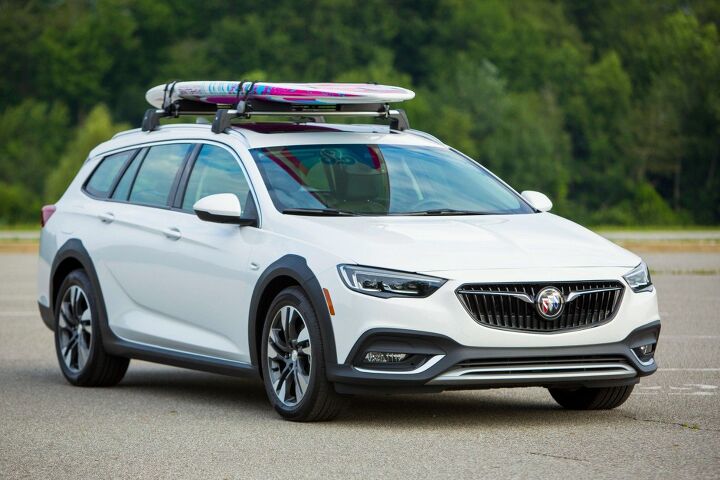
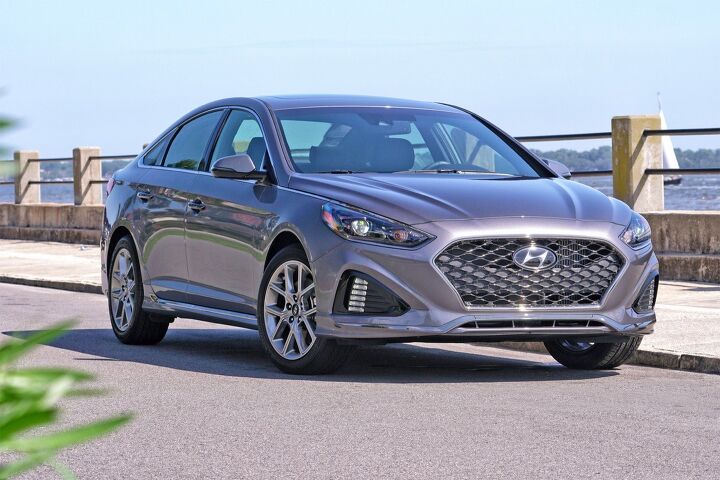

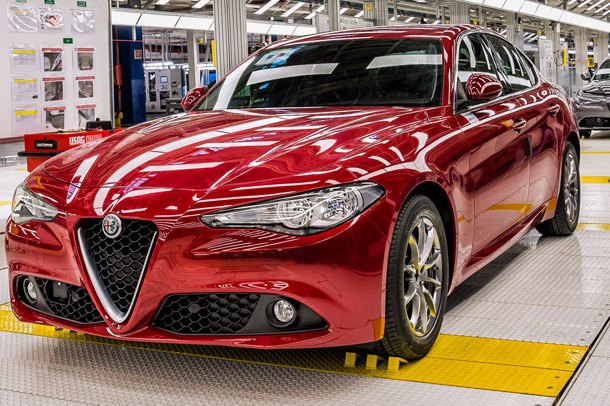
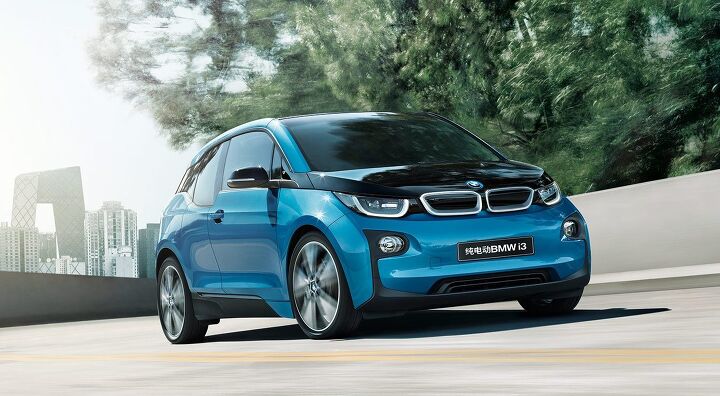


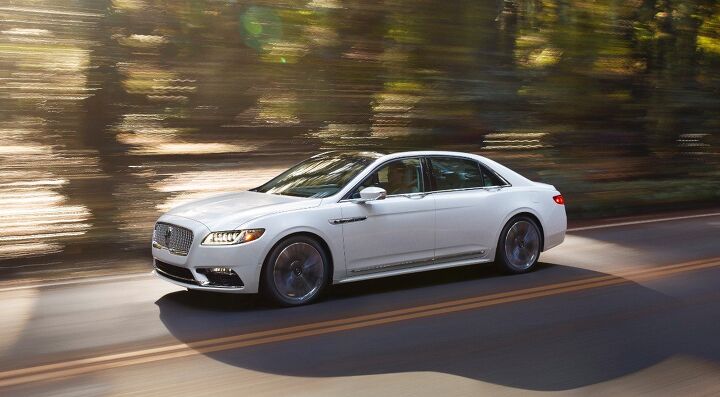


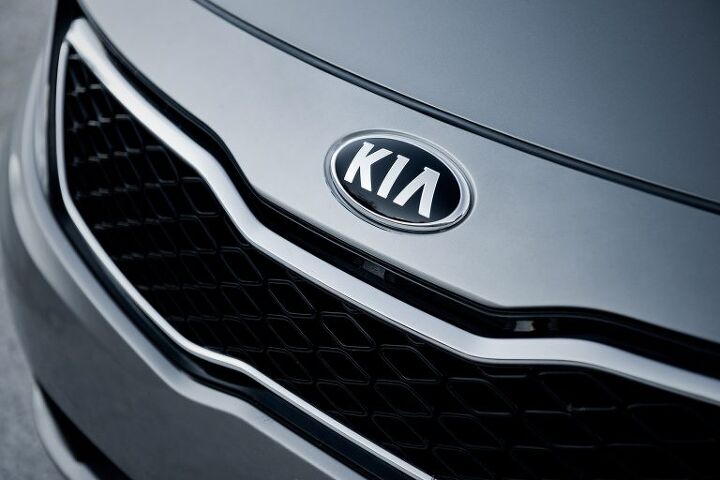

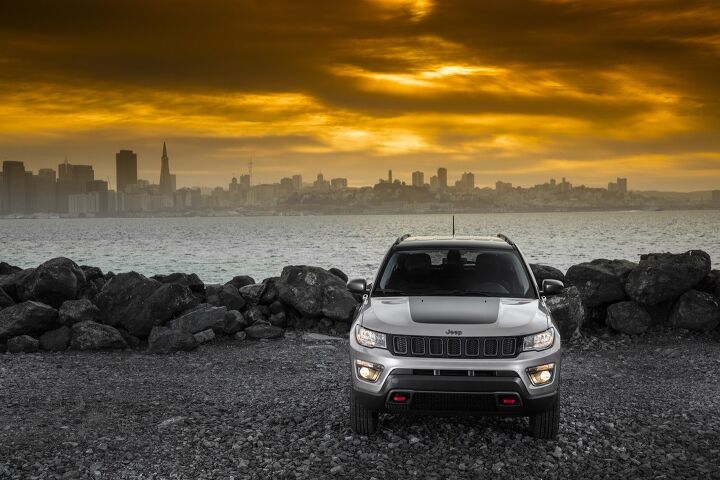
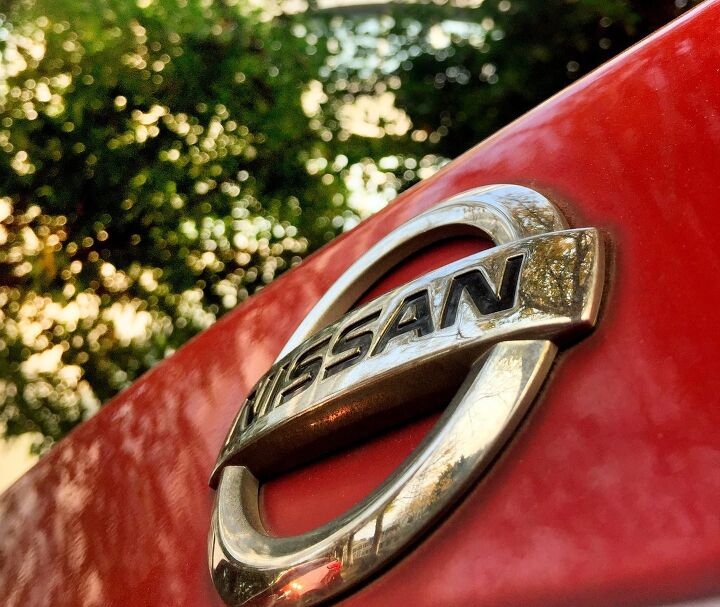
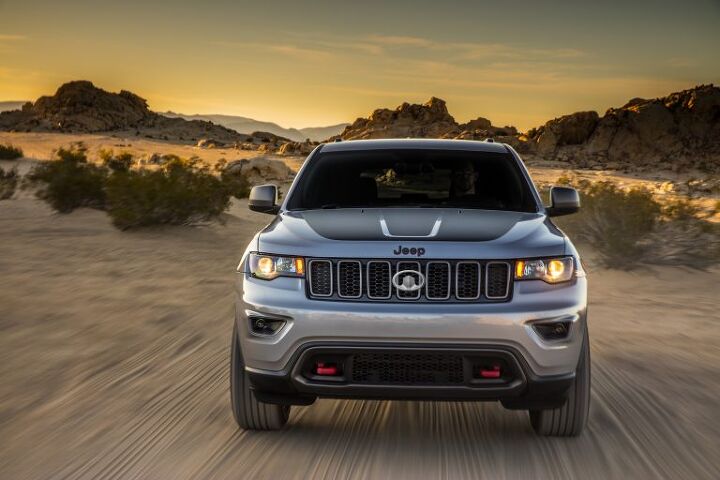












Recent Comments